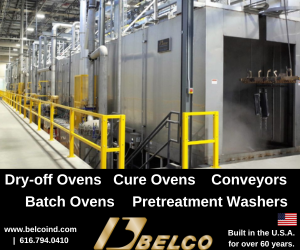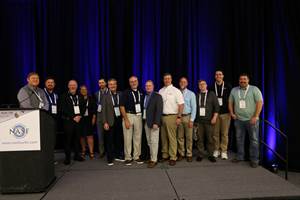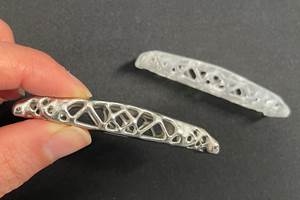Electronic Plating: OutREACH or OverREACH?
U.S. chemical companies can benefit from compliance with the European regulation.
The European Union’s Registration, Evaluation, Authorization and Restriction of Chemicals regulation, better known as REACH, is now reality for the 28 countries of the EU and three others that follow its lead. Some U.S. chemical companies decry it as burdensome, but those who comply gain access to a market with a population of 743 million—and bragging rights in terms of environmental credentials and worker safety.
The overall goal of REACH is to protect human health and the environment through better and earlier identification of the intrinsic properties of chemical substances. A secondary goal is to enhance innovation and competitiveness within the chemicals industry, especially among those companies that supply materials to the plating industry, including electronics and circuit boards.
The REACH regulation tasks industry with the responsibility to manage the risks associated with chemicals and to provide safety information. It requires that manufacturers and importers gather information on the properties of their chemicals and register that information in an established database. The regulation also calls for substitution of the most dangerous chemicals when there are suitable alternatives.
For many years, companies made and marketed substances in Europe, sometimes in great quantities, without providing sufficient information on their potential hazards to human health and the environment. The REACH regulation was developed to fill these information gaps and thereby ensure that industry can assess the risks associated with a substance and implement the risk management strategies needed to protect people and the environment.
Here is some fundamental information about REACH:
Registration
REACH requires registration of chemical substances made or imported into the EU in quantities greater than 1 metric ton per year. This amount applies “per substance” and “per manufacturer” (or importer). The requirement is for chemical substances as such and in preparations, and, under certain conditions, for finished products incorporating those substances.
REACH assigns the obligation to register to the EU-based manufacturer or importer. Non-EU-based companies may appoint an “only representative” (commonly referred to as an OR) to manage their registration dossiers. The registrations are submitted to the European Chemicals Agency (ECHA) through IUCLID software at iuclid.eu.
Registration is mandatory when a company enters a market, and the deadline for existing chemicals is May 31, 2018. Because the cost and burden of registering can be daunting, the EU has exempted some substances. Exemptions relative to the finishing industry include chemical substances imported into the EU or manufactured in quantities of less than 1 metric ton, chemical substances used for R&D, waste substances, and polymers.
Evaluation
There are two aspects to REACH evaluation: dossier evaluation and substance evaluation. The ECHA is required to perform a compliance check on at least 5 percent of the dossiers submitted for registration, focusing on completeness and quality of information. The ECHA notifies registrants of any deficiencies.
To meet the requirement for substance evaluation, each year the ECHA and the EU member states select chemical substances for placement on the Community Rolling Action Plan, commonly referred to as CoRAP, for further evaluation. The member states focus on those substances that are manufactured/imported in large quantities, and that are persistent and prone to bioaccumulation. Each member state designates an agency that performs the evaluation.
Authorization
U.S. companies that want to export or use within the EU a chemical substance identified as a “substance of very high concern” (SVHC) must obtain a “use authorization” to ensure that such a chemical is adequately controlled and replaced. Those concerned about whether one of their products requires an authorization should review the authorization and candidate lists. (The candidate list includes chemical substances for which the EU is considering requiring use authorizations.)
Companies that import finished products containing substances on the candidate list also have certain legal obligations. The ECHA offers guidance documents on its website, including articles that specify when a company is obligated to notify the agency and communicate safe-use information.
Restriction
Any chemical substance on its own, in a preparation or in a product may be subject to use restrictions, allowing the European Commission to control those that are dangerous. Chemical substances currently subject to restriction can be found in the REACH Annex XVII, short.pfonline.com/restrict. Again, the final registration deadline for all phase-in substances manufactured or imported in the EU in quantities of at least one metric ton is May 31, 2018. View the ECHA website at echa.europa.eu/reach-2018 for more information.
Other Useful Information
- Competent Authorities meetings on REACH implementation (CARACAL) bring together the European Commission, ECHA, member states and stakeholders, including non-EU countries. U.S. companies can get information on CARACAL meetings by contacting the U.S. mission at office.brusselsec@trade.gov.
- The Commercial Service, the trade arm of the U.S. Department of Commerce, maintains this list of businesses providing OR and consulting services to U.S. companies: Ecomundo (Vancouver, British Columbia, Canada), the European-American Business Organization Inc. (New York, New York) and Tox Focus LLC (Little Rock, Arkansas).
Guidance and Legislation
- ECHA offers a number of documents and a question and answer section to help companies determine their REACH obligations. Visit echa.europa.eu.
- U.S. exporters may also submit questions to the ECHA or member state help desks at no charge at echa.europa.eu/support/helpdesks.
- Inquiries (labeled “REACH Inquiry”) also can be emailed to office.brusselsec@trade.gov.
About the Author
Rich DePoto
Rich DePoto is the manager of business development at Uyemura USA. Visit Uyemura International.
Related Content
Products Finishing Reveals 2023 Qualifying Top Shops
Each year PF conducts its Top Shops Benchmarking Survey, offering shops a tool to better understand their overall performance in the industry. The program also recognizes shops that meet a set of criteria to qualify as Top Shops.
Read MoreTrivalent Chrome Overview
As the finishing industry begins to move away from the use of hexavalent chromium to trivalent chromium, what factors should finishers consider as they make new investments? Mark Schario, chief technology officer for Columbia Chemical offers a helpful overview of this complicated topic.
Read MorePossibilities From Electroplating 3D Printed Plastic Parts
Adding layers of nickel or copper to 3D printed polymer can impart desired properties such as electrical conductivity, EMI shielding, abrasion resistance and improved strength — approaching and even exceeding 3D printed metal, according to RePliForm.
Read MoreProducts Finishing Reveals 2024 Qualifying Top Shops
PF reveals the qualifying shops in its annual Top Shops Benchmarking Survey — a program designed to offer shops insights into their overall performance in the industry.
Read MoreRead Next
Episode 45: An Interview with Chandler Mancuso, MacDermid Envio Solutions
Chandler Mancuso, technical director with MacDermid Envio discusses updating your wastewater treatment system and implementing materials recycling solutions to increase efficiencies, control costs and reduce environmental impact.
Read MoreEducation Bringing Cleaning to Machining
Debuting new speakers and cleaning technology content during this half-day workshop co-located with IMTS 2024.
Read MoreDelivering Increased Benefits to Greenhouse Films
Baystar's Borstar technology is helping customers deliver better, more reliable production methods to greenhouse agriculture.
Read More





















